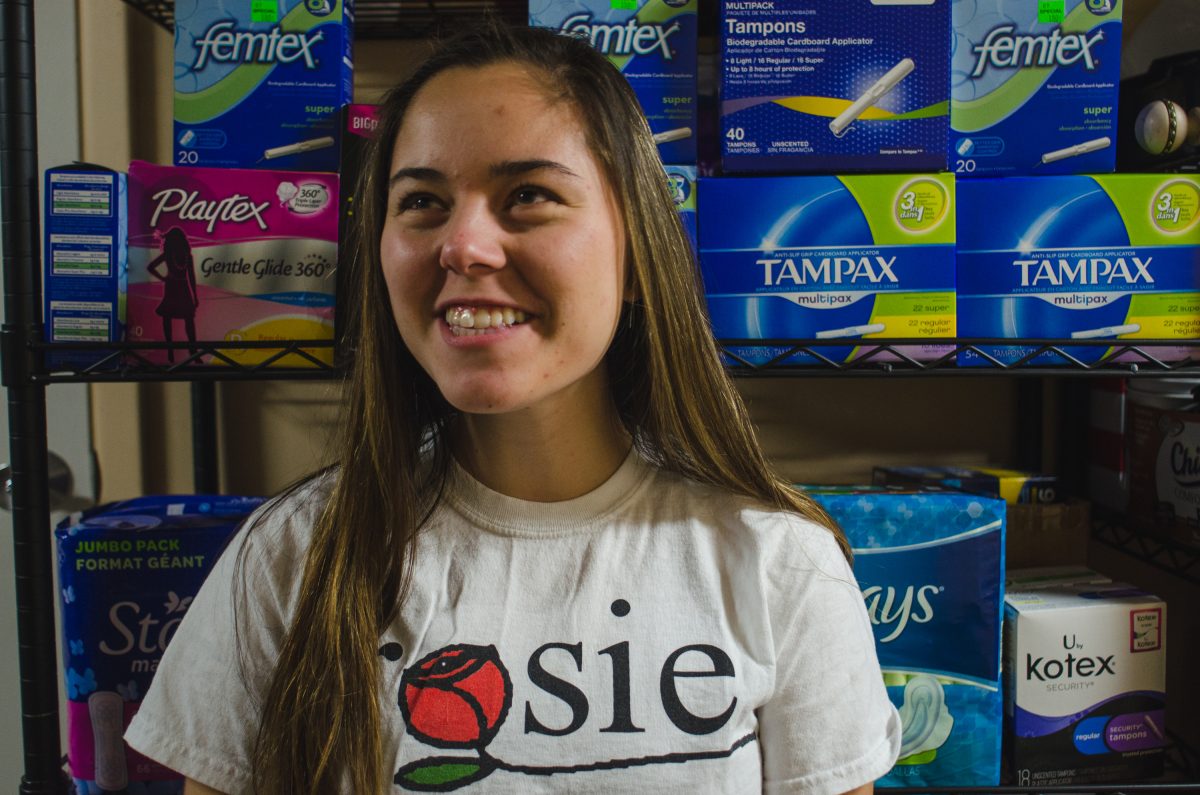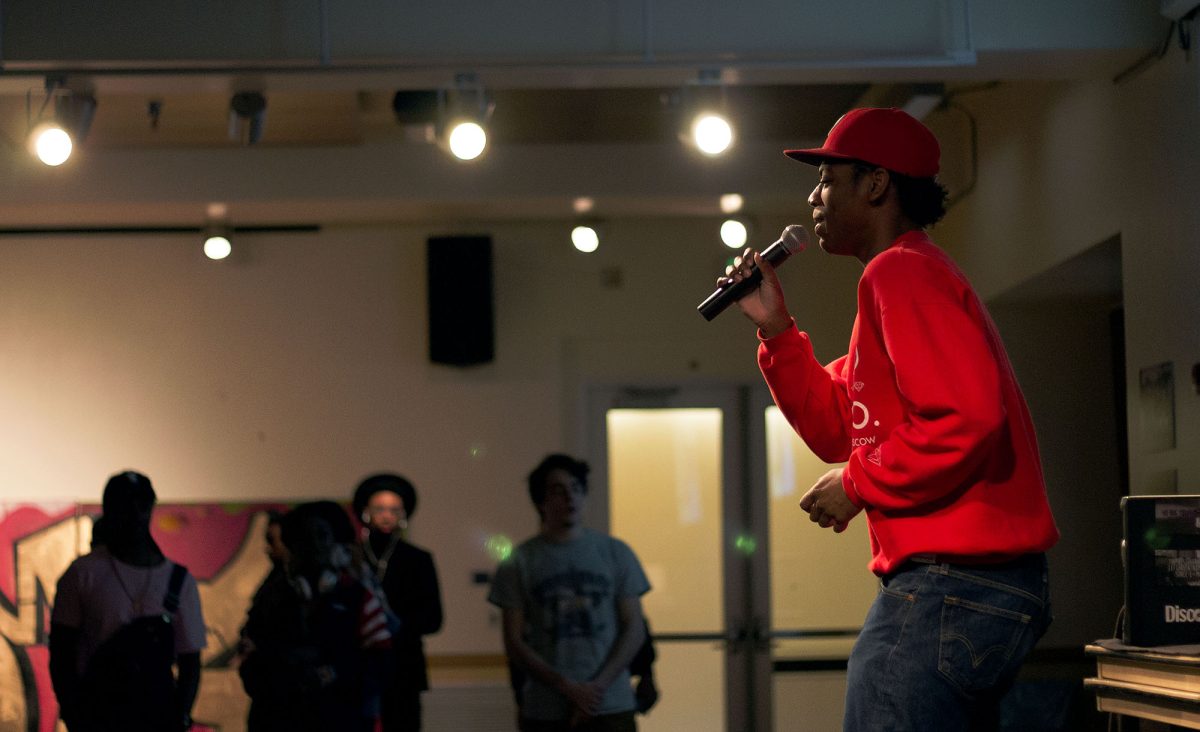Words by Melissa Epifano
Tampons, pads, and pantyliners aren’t usually things women look forward to buying – at least I certainly don’t. Periods are kind of a pain in the ass, in more ways than one. Between pantyliners, pads, night time pads, and tampons, menstruation drains roughly $200 or more out of our wallets in a year. The average woman will have 456 periods in her life. So, after the necessities listed above, new underwear, birth control for many, ibuprofen/Midol, and heating pads (maybe some chocolate too), we are spending around $18,171 in a lifetime to treat something we didn’t choose to have. Not to mention, 40 out of the 45 states with sales tax label these items as taxable “luxury products.”
The struggle is real for us women. But aside from our discomfort and financial burden, there are women who are forced to face the unimaginable when their periods come.
According to WomenseNews.org, some rural villages in Nepal have women stay in sheds or separate rooms while they menstruate. Women can’t be sushi chefs because they menstruate, according to the well known sushi chef, Yoshikazu Ono. And in 2013, it was found by UNICEF that 48 percent of girls in Iran believed menstruation was a disease. The lack of education and growing taboo surrounding this natural process has caused issues from females missing class or work, to violence against women. But that doesn’t even begin to touch on the problems menstruation causes for women who are dealing with homelessness or poverty.
564,708 people on a given night in America in January 2015 were homeless. That’s nearly 3.5 times the size of Eugene’s population. Women make up 214,589 of that portion. Not only do they have to face icy temperatures, rainy nights, and dangerous sleeping areas, but the scarcity of food and water make it challenging to predict when they can eat their next meals. On top of that is the inaccessibility to personal hygiene items. Everyday things that so many people take for granted – like showers, toilets, and sinks – are a rare blessing for those on the street. But for homeless women, items like sanitary pads, tampons, menstrual cups, and other forms of feminine hygiene products are nearly impossible to come by. A combination of every issue relating to periods makes this time of the month miserable for women all across the world. Lowering the cost and increasing the accessibility of these items can be difficult, but luckily, there are groups like Rosie.
Manju Bangalore, a double major in physics and math at the University of Oregon, was shopping with a friend at Target when this issue hit her. They were curious about how women dealing with homelessness handle their periods.
“It said on Google that if they have access to a homeless shelter they can get a few pads a month, but that’s pretty much it,” Bangalore says.
She went back and discussed her findings with two guys on her residence hall floor who were instantly interested in helping her take action. Hours of research, hard work, and little sleep led to two branches in Lane County and Benton County, a branch in India in the works, and a 501(c)(3) non-profit called Rosie. First Place Family Center, a part of St. Vincent de Paul, donated their upstairs to hold collected menstrual supplies and their address to collect donations for a year.
With a few grants, fundraisers, and community member donations, Rosie has been able to collect pads and tampons to donate to local shelters. They prefer monetary donations in order to supply women with the safest, healthiest options.
“We have specific pads and tampons we buy to make sure that the risk of Toxic Shock Syndrome is lower, for example if someone gave us scented ones, they might not be as healthy,” Bangalore says.
Rosie has also formed a partnership with DivaCup, a brand that supplies a more reusable, longer-lasting type of menstrual product. Few homeless shelters have been open to this type of donation due to the fact that many homeless people don’t have access to clean water, which would be used for washing the cups.
“There are a lot of plusses but I definitely understand the reasons why people are being hesitant in taking them from us. But I think we are starting to find some shelters that are open to the idea,” Bangalore says.
On top of providing shelters with these products, the other half of Rosie’s mission is educating people about menstruation and removing the stigma that surrounds periods. Members of Rosie post weekly blog posts and are starting to make videos that help inform readers and viewers on topics like having sex on your period, and other questions people are too embarrassed to ask.
This education and donation process has given Bangalore much inspiration for how she wants Rosie to grow.
“I want us to be able to expand to as many places as possible, and definitely places like Uganda,” say Bangalore. “Many girls can’t graduate from high school because of the lack of menstrual products, because what ends up happening is they have to free bleed and they can’t go to school.”
Bangalore also has the idea to help local economies and women by providing the supplies to make pads, so they can not only have the products, but they can make a living off of it as well. Rosie also aspires to work with groups of people that are often marginalized, such as women who are in prison or patients struggling with mental illnesses in hospitals.
Another goal is to make sure that all public bathrooms — both men’s and women’s — in Eugene and Springfield have feminine products.
“There are trans guys and agendered people who don’t identify that way, but still menstruate,” Bangalore says. “So if you’re a trans guy, you don’t have to choose between the restroom you don’t want to use to get a pad and into the restroom you want to use but you can’t because there are no pads.”
Bangalore is amazed by the people who work for Rosie and the amount of dedication they put into the group, despite most of their having part-time jobs, classes, and other extracurricular activities. A combination of all of their ambitions and the donations they receive have began a movement toward feminine items being available for every person who needs them.
The stigma around periods needs to dissipate, the price for pads and tampons needs to drop, and the accessibility to education and products needs to become easier. Living in a world where women can use $18,000 toward education, a car, or you know, anything other than Midol and tampons, is one worth working toward.
I’d like to add a disclaimer that although I use the term woman and/or girl throughout this piece, we understand that women aren’t the only people who menstruate. But for clear and concise wording, I chose to use the words woman/women/girls.














